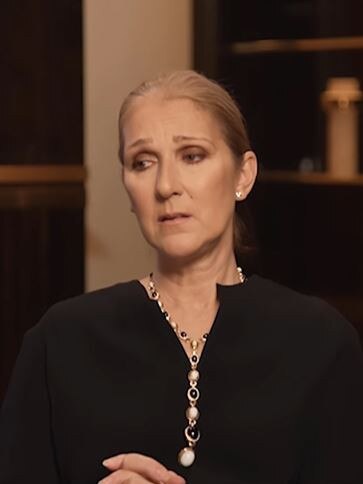Celine Dion’s battle with stiff person syndrome explained as family gives tragic health update
Fans have sent messages of support to Celine Dion after a heartbreaking update as she battles stiff person syndrome. Find out more about her rare condition.
World
Don't miss out on the headlines from World. Followed categories will be added to My News.
Celine Dion’s sister has shared a heartbreaking update about the superstar’s battle with stiff person syndrome.
Claudette Dion told Canada’s 7 Jours that Celine, 55, has “lost control of her muscles” as the debilitating condition has worsened over time.
“What breaks my heart is that she’s always been disciplined,” she told the outlet. “She’s always worked hard. Our mother always told her, ‘You’re going to do it well. You’re going to do it properly’.”
Claudette added that Celine has a desire to perform again despite the dire outlook.
“It’s true that in both our dreams and hers, the goal is to return to the stage,” she said. “In what capacity? I don’t know.”


In December 2022, Celine announced that she would have to cancel the remainder of her Courage world tour due to the progressive and incurable neurological disorder that attacks one’s muscles — including vocal cords and the heart.
“The vocal cords are muscles, and the heart is also a muscle,” Claudette said.
“This is what comes to get me. Because it’s one out of a million case, the scientists haven’t done that much research because it didn’t affect that many people.”
Fans flooded the singer’s Instagram to give her well wishes following the tragic health update.
One fan wrote: “I pray for healing for you Queen. May God heal you so you can continue making wonderful music.”
Another said: “Your voice is a gift to the world. Praying for you Celine.”
And while experts say stiff person syndrome can’t be cured, treatments can improve patients’ capacity to move.
Take a look at what the syndrome is, how it affects the body and what can be done to treat it.
WHAT IS STIFF PERSON SYNDROME?
It’s a rare and incurable condition that affects the nervous system, and while it’s not fatal, the disease has a profound impact on the quality of life for the sufferer and their mobility.
People who have it usually experience a slow onset of stiffness in their torso and limbs, and spasms that can be debilitating.
The condition was first identified in 1924 as researchers observed a handful of patients who appeared “board like” and who would fall like a “wooden man” or a “wax dummy”.
WHAT ARE THE SYMPTOMS?
According to the Stiff Person Syndrome Centre at Johns Hopkins Medicine, the disease most often causes painful muscle contractions and spasms that often begin in the legs and back.
Spasms can also affect the abdomen, and less often the upper trunk, arms, neck and face.
The spasms can occur in episodes, especially when a person with SPS is surprised or startled, or moves suddenly. Cold temperatures and emotional stress can also set off a muscle spasm. In some people, the spasms are brought on by certain exercises or touch.
Other symptoms include difficulty walking, rigid posture, unsteadiness and falling because of sudden spasms and shortness of breath.

WHAT CAUSES IT?
Scientists are yet to fully understand what causes stiff person syndrome but research suggests it is an autoimmune condition, meaning the body’s immune system attacks healthy cells in the nervous system.
It can show up spontaneously or in the context of another condition such as a cancer.
Experts say its antibodies appear in two forms – one called glutamic acid decarboxylase, which can be associated with type 1 diabetes, and another called amphiphysin, more likely to be associated with cancers.
WHO DOES IT AFFECT?
Stiff person syndrome affects around one or two people in every million.
However, researchers cannot say exactly why it affects more women than men, but point to auto-immune conditions being more common among females.
The condition can be difficult to diagnose early on, when symptoms are less severe, because it’s extremely rare and could be other more common diseases.
It takes on average seven years to diagnose, according to the Stiff Person Syndrome Research Foundation, and appears similar to the more common chronic condition multiple sclerosis.
HOW IS IT TREATED?
There is no known cure for stiff person syndrome, but medications can ease the symptoms. Immunoglobulin medications can help lower sensitivity to light or sound triggers, potentially helping head off falls or spasms.
Pain relievers, anti-anxiety medications and muscle relaxers can be a part of treatment for this disease. The Stiff Person Syndrome Centre also uses botulinum toxin injections.
More Coverage
Originally published as Celine Dion’s battle with stiff person syndrome explained as family gives tragic health update





